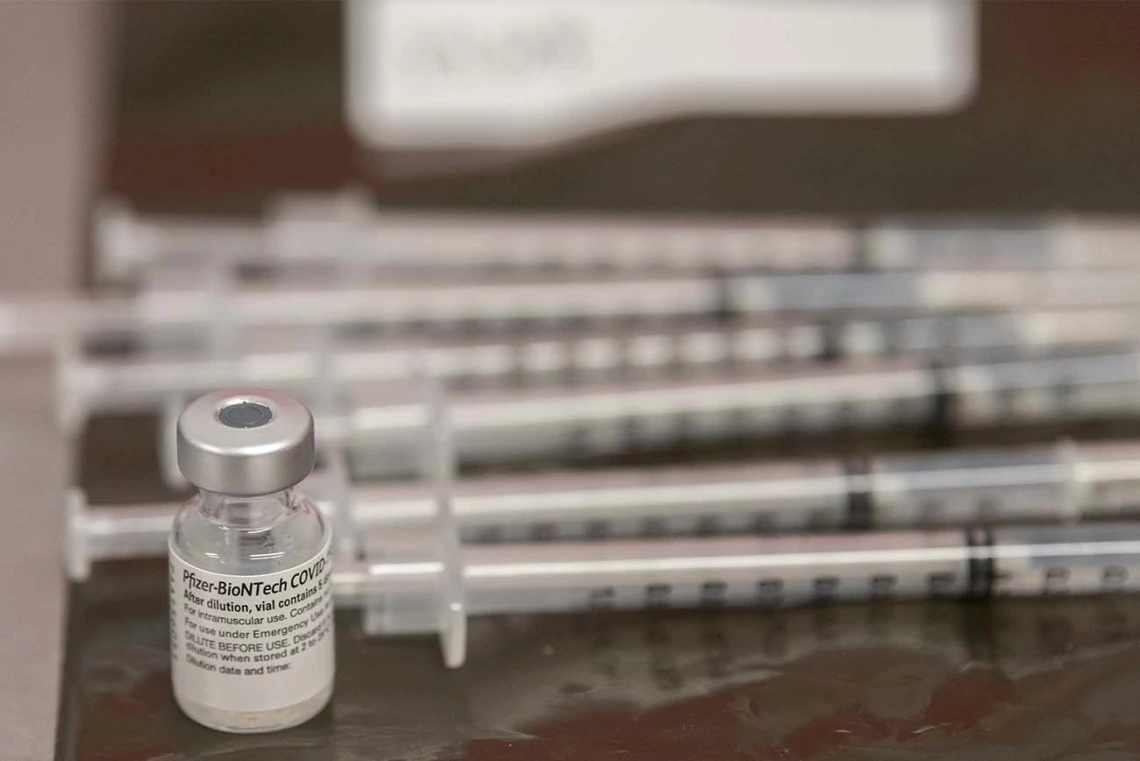UArizona Health Sciences Study Suggests Greater Vaccination Push Needed to Combat Delta Variant
The AZ HEROES longitudinal study on COVID-19 shows a decline in vaccine effectiveness from 91% prior to delta variant predominance to 66% afterward, suggesting an increased level of vaccination will be required to end the pandemic.

The longitudinal Arizona Healthcare, Emergency Response, and Other Essential Workers Surveillance (AZ HEROES) research studyexamined the effectiveness of the Pfizer-BioNTech COVID-19 vaccine before after the emergence of the delta variant.
New data from an ongoing University of Arizona Health Sciences research study show that the COVID-19 vaccines remain effective following the predominance of the delta variant, although at a lower rate than prior to its emergence. The newly released findings from the longitudinal Arizona Healthcare, Emergency Response, and Other Essential Workers Surveillance (AZ HEROES) research study at the Mel and Enid Zuckerman College of Public Health point to a need for more vaccinations to offset the decline in effectiveness.
“When vaccine effectiveness declines, it means a higher proportion of the population needs to be vaccinated to get the pandemic under control,” said Jeff Burgess, MD, MS, MPH, associate dean for research and professor at the Zuckerman College of Public Health, who has been leading the AZ HEROES study since it was funded by the Centers for Disease Control and Prevention in spring 2020.
The study’s most recent findings were published today by the CDC in the Morbidity and Mortality Weekly Report. The report incorporates data from two CDC-funded studies: the AZ HEROES study and the Research on the Epidemiology of SARS-CoV-2 in Essential Response Personnel (RECOVER) study, which have merged to become the HEROES-RECOVER Network that includes participants from multiple regions of the country.
“Even with lower vaccine effectiveness following the emergence of the delta variant, individuals in our study who were vaccinated had a two-thirds reduction in risk of infection compared with unvaccinated individuals. Further, we know from other studies that vaccinated individuals who become infected are much less likely to end up hospitalized with severe infection, so there are good reasons to continue to push for higher vaccination coverage,” said Kate Ellingson, PhD, an assistant professor at the Zuckerman College of Public Health who is the lead epidemiologist on the AZ HEROES team.
Other contributors to the report include CDC researcher Ashley Fowlkes, ScD, and other coauthors Manjusha Ganglani, MBBS, Kimberly Groover, PhD, Matt Thiese, PhD, and Harmony Tyner, MD.
In addition to Dr. Burgess, the AZ HEROES research team includes: Karen Lutrick, PhD, assistant professor in the Department of Family and Community Medicine at the College of Medicine – Tucson; Janko Nikolich-Zugich, MD, PhD, head of the College of Medicine – Tucson’s Department of Immunobiology and co-director of the Center on Aging; and Joe Gerald, MD, PhD, and Xiaoxiao Sun, PhD, both at the Zuckerman College of Public Health.
Contact
Shipherd Reed
520-626-9669
shipherd@email.arizona.edu

